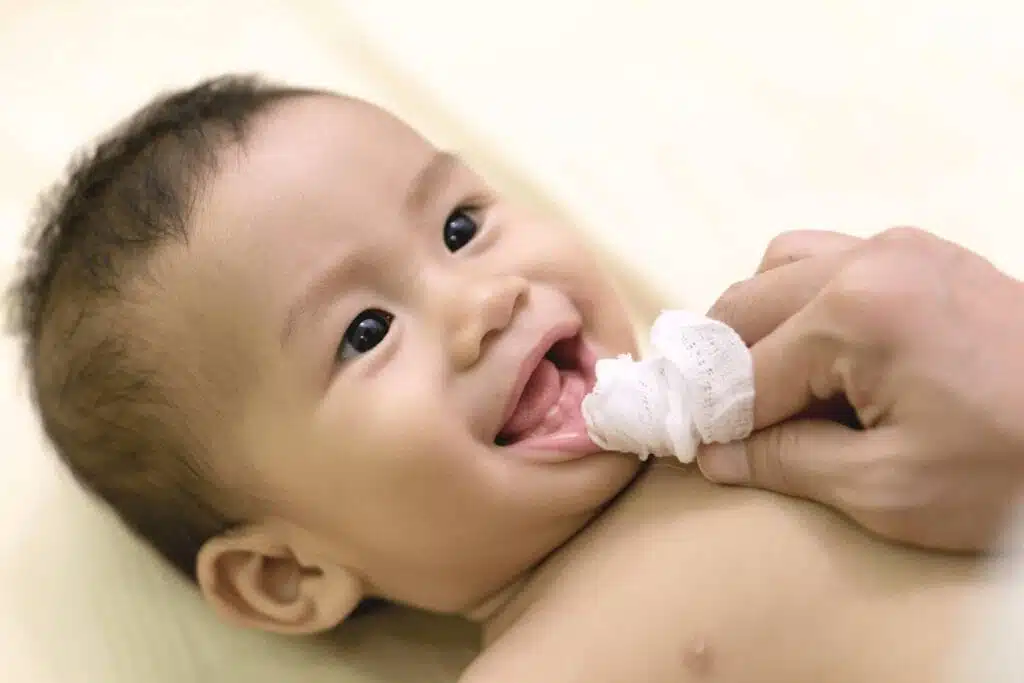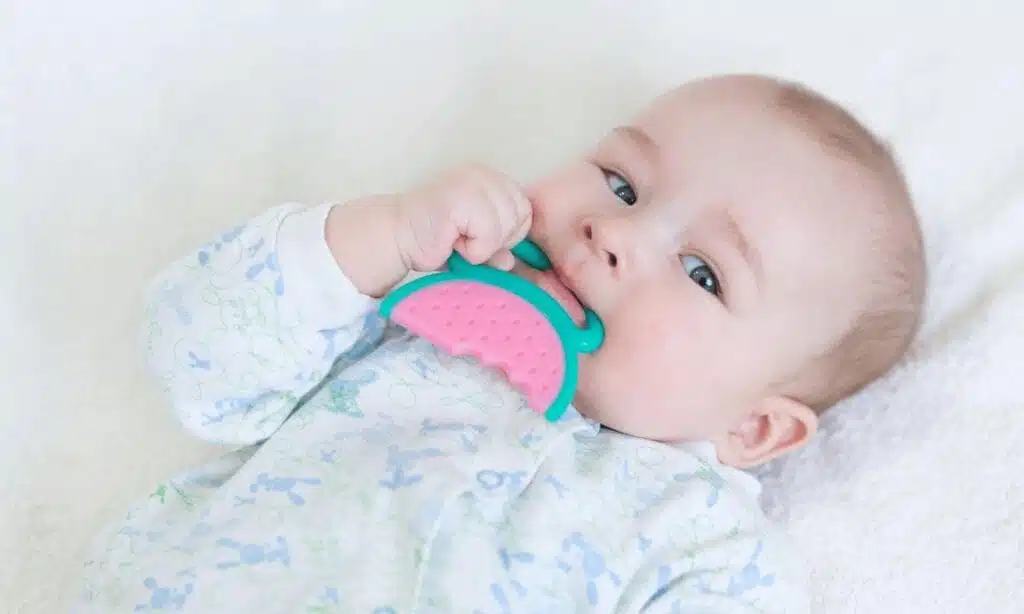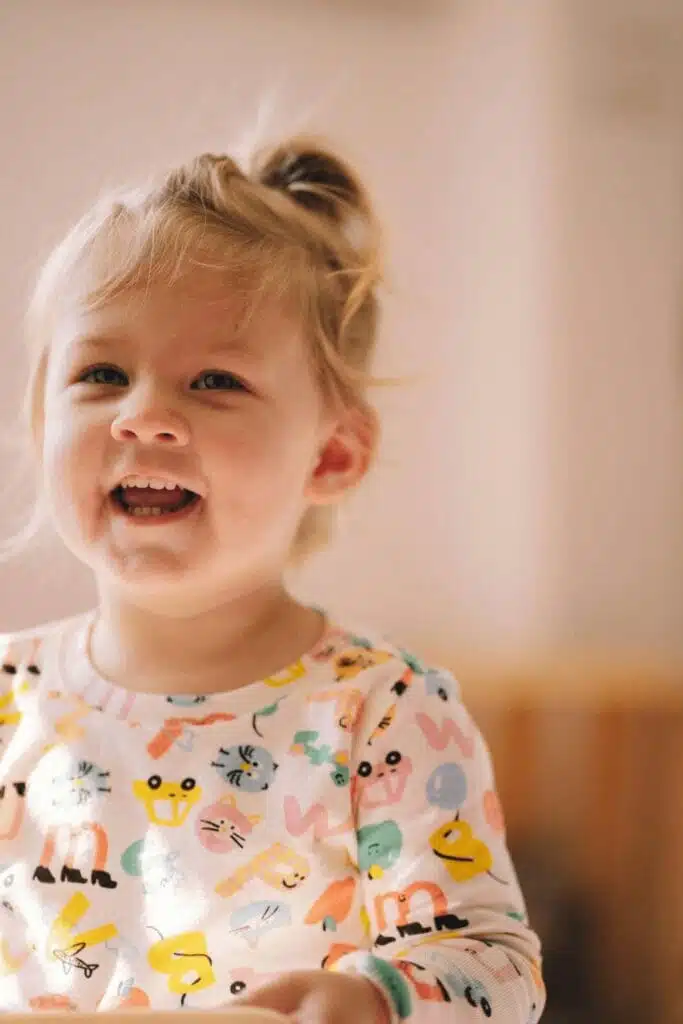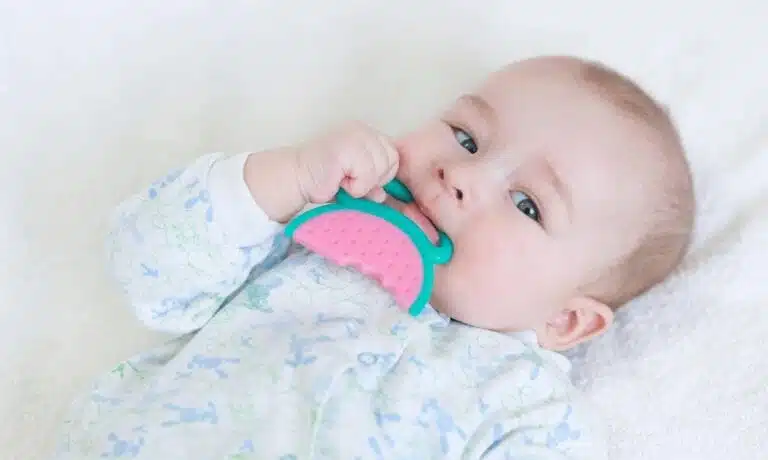It’s no surprise that when a baby grows, parents observe and experience many things. One of them is baby grinding teeth, which is a common thing but new parents get worried easily. This typically begins when an infant’s teeth start to emerge around 6 months of age. For parents, the sound of tiny teeth grinding is unsettling, but is generally harmless and ends on its own as the child grows.
Interestingly, there are many reasons behind Infant grinding teeth such as teething discomfort, misaligned teeth, or even stress. As a parent, it’s natural to be concerned about your baby’s dental health but there’s nothing to be worried about if a 1 year old grinding teeth.

However, it’s better to understand the reasons behind this behaviour and how you should respond to keep your little one’s oral health in check. So, let’s discuss how to stop a baby from grinding their teeth.
Table of Contents
ToggleWhy Babies Grind Their Teeth
Babies grind their teeth due to the discomfort of teething. As new teeth emerge, the sensation can lead to baby grinding teeth to soothe their gums. Sometimes, baby also grind teeth due to stress. Interestingly, babies also grind to enjoy the feeling of their teeth coming together.
This behaviour is usually temporary and ends as more teeth come in. While parents may worry, infant grinding teeth is a common phase of growing up. It’s just like when you struggle with your newborn to sleep in bassinet.
3 Things To Do When Baby Grinding Teeth
When you notice your baby grinding teeth, you can take some actions to soothe their discomfort and protect their developing teeth. Here are three effective strategies if you want to learn how to stop a baby from grinding their teeth.
1. Provide a Teething Toy
Teething toys are a lifesaver when dealing with infant grinding teeth. These specially designed toys provide a safe surface for babies to gnaw on to reduce the discomfort associated with teething. So, look for baby toys made from food-grade silicone or BPA-free materials that are easy for your baby to grip.
For a 1 year old grinding teeth, teething toys with various textures and shapes can keep them engaged. Musical toys are best for such purposes. You can even refrigerate some teething toys for additional relief through the cooling effect. Always supervise your child when using teething toys for safety.

2. Gently massage their gums
Gently massaging your baby’s gums can provide immediate relief from the discomfort that may be causing them to grind their teeth. Don’t give them early kids toothbrush or baby toothpaste. Use a clean finger or a damp cloth to apply gentle pressure if baby grinding teeth. This technique is practical for a 9 month old grinding teeth during the teething process.
Make sure to wash your hands thoroughly before massaging your baby’s gums to prevent introducing harmful bacteria. If your baby enjoys the gum massage, you can make it a regular part of their oral care routine.
3. Give a cool washcloth to chew on
Many parents wonder when to start buying baby stuff but they don’t consult or search before. For example, if your baby grinding teeth, there’s no need to buy anything. You can provide a damp washcloth for your baby to chew on. The coolness helps numb the gums, while the texture of the cloth provides a satisfying surface for your baby.
To prepare a teething washcloth, simply wet a clean, soft cloth with water and place it in the refrigerator for a short time. Ensure the cloth is cool but not freezing. This method is particularly useful for younger infants who are not ready for structured teething toys.
How Long Does Teeth Grinding Pain Last
The duration of pain from teeth grinding can vary, but it usually coincides with the teething phase. Baby grinding teeth is common, and the discomfort typically lasts as long as the teething process continues. As more teeth emerge, the grinding and associated pain often diminish.
For most infants, infant grinding teeth and the discomfort that comes with it generally resolve within a few months. If pain-persists or seems severe, consulting a dentist can provide additional support and relief options.

How Long Does Teething Last
Teething usually lasts for several months, with the process starting around six months and continuing until the child is about two to three years old. During this period, many parents notice baby grinding teeth as a common reaction to the discomfort.
For a 9-month-old grinding teeth, this behaviour can be part of the teething process and may last until the baby has all their primary teeth. While teething can be uncomfortable, it generally resolves as more teeth come in and the initial discomfort fades.
How To Stop A Baby From Grinding Their Teeth
To stop a baby from grinding their teeth, first ensure their teething discomfort is managed effectively. Offering teething toys, using a cold washcloth, or gently massaging their gums can help alleviate the pain that often leads to baby grinding teeth.
For a 1-year-old grinding teeth, establishing a consistent bedtime routine and reducing stress can also be beneficial. If the grinding persists or causes concern, consulting a pediatric dentist may provide additional strategies and reassurance for managing this behavior.
Conclusion
While baby grinding teeth is a common part of teething and typically resolves on its own, understanding how to manage it can ease your concerns. There are strategies like giving teething toys, massaging gums.
You can also provide a cool washcloth that can help soothe your baby’s discomfort and protect their dental health. For ongoing tips and advice, keep following BabySearchProducts for more insights and product recommendations.


